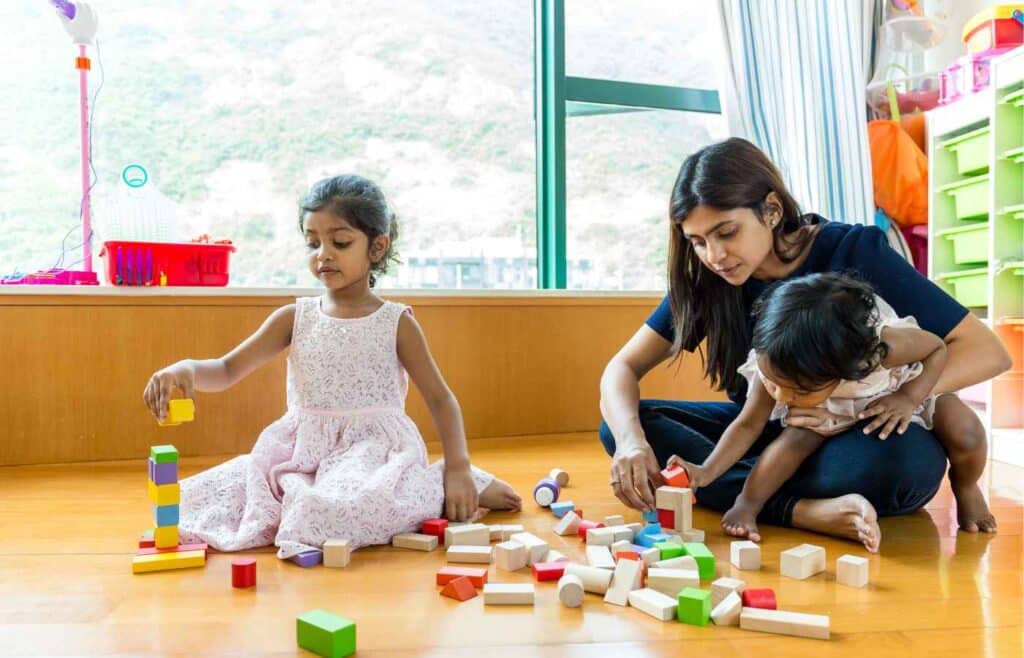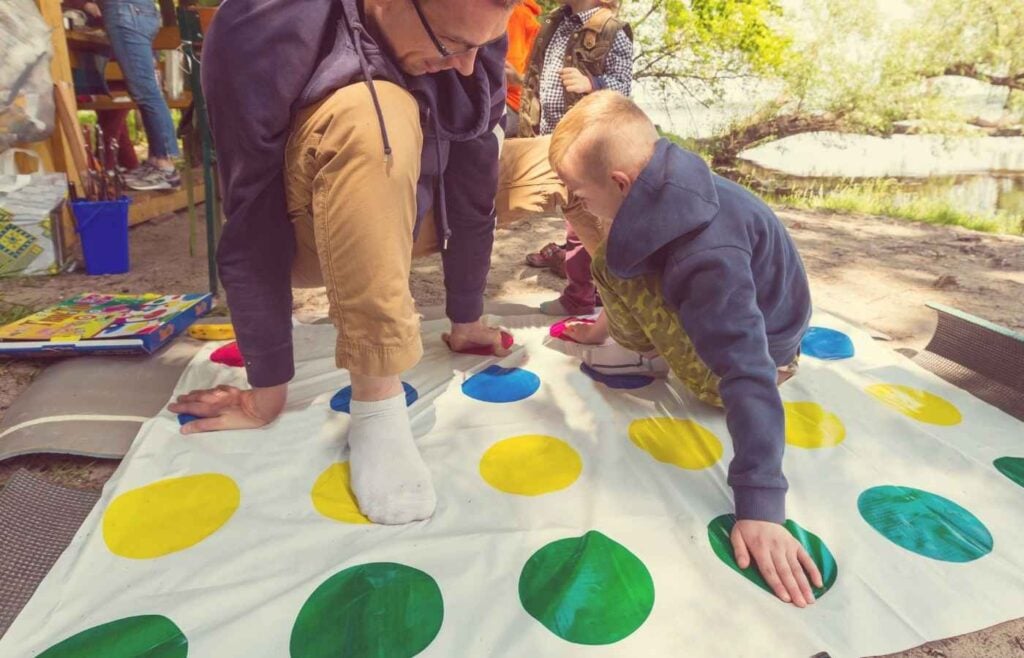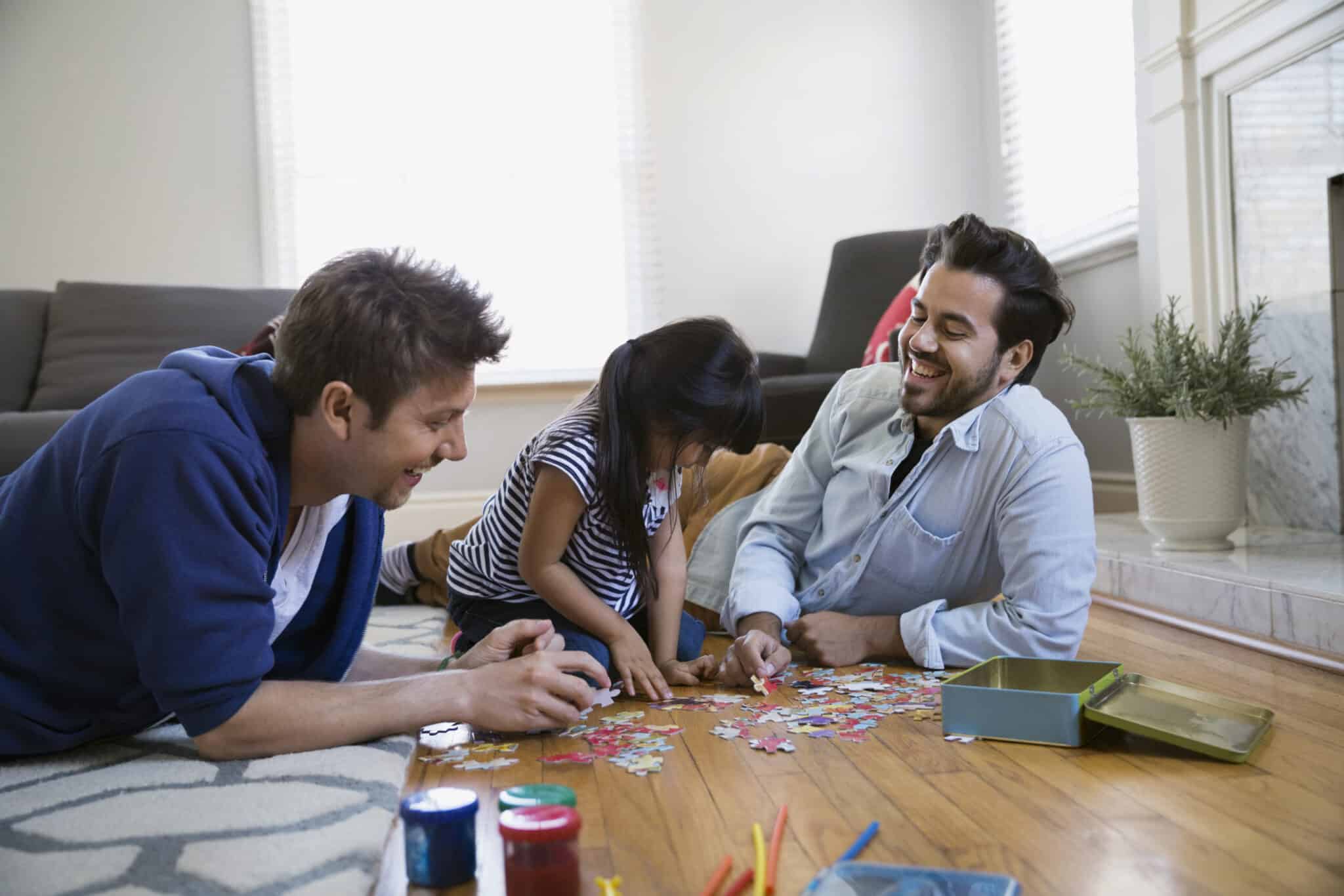The science is clear – playing together as a family is one of the most powerful ways to boost your family’s well-being.
From bringing joy and laughter into the home to reducing stress, strengthening bonds, and supporting healthy child development, family playtime offers countless benefits for both children and adults.

However, in today’s fast-paced, tech-driven world, finding time for simple play has become more difficult. We’re constantly pulled in different directions by the convenience of Netflix, the allure of video games, packed after-school schedules, and the constant presence of our digital devices. These distractions make it harder to give our children the focused, undivided attention they need.
Yet, carving out time for family play isn’t just a nice-to-have—it might be the most important thing you do for your family’s emotional and mental health.
Benefits of Playing Together as a Family
Brings Joy and Lightheartedness:
Family playtime is full of laughter, smiles, and joy. Younger kids naturally embrace play, but it’s just as vital for older children and teens who may need a little more encouragement to unwind. Playing together as a family creates happy memories and strengthens emotional connections for everyone.
Reduces Stress for Everyone:
Just like physical activity, quality family time can significantly reduce stress levels for both children and adults. Whether you’re playing an active game outside or sitting down for a board game, family play offers a healthy way to relieve tension and promote emotional well-being.
Heals Relationships and Resolves Conflict:
Sometimes, the best way to move on from a disagreement is through fun. A simple game, like Uno or charades, can help ease tensions and heal relationships. Playing games as a family shifts the focus back to positive interactions, helping to restore harmony and build stronger family bonds.
Strengthens Family Bonds:
In our tech-driven world, family bonding through play is a powerful way to connect without the distractions of screens or social media. Playing together allows families to spend quality time with one another, deepening relationships and creating cherished memories.
Supports Healthy Child Development:
Children need more than food and shelter for healthy growth—they need meaningful connections with their family. Family playtime provides the affection, attention, and interaction that’s crucial for a child’s emotional and cognitive development. Carving out time to play together supports your child’s overall well-being.
How to Enjoy Playing

After a long day at work, many parents just want to sit and rest. But kids, with their boundless energy, often come running, eager for playtime. Instead of turning them down, try finding activities you genuinely enjoy that can also be shared with your children. Family playtime should be fun for everyone—not another chore on your to-do list.
Think about what activities bring you joy. Some parents love roughhousing or wrestling with their kids, while others prefer playing cards, dancing, reading books, or going for a walk around the neighborhood. When you genuinely enjoy the activity, your kids will sense your enthusiasm, which leads to a more positive and memorable playtime experience.
For more ideas on creating lasting memories, check out our article on How to Be a Fun Mom and explore activities that bring joy to both you and your children.
Playing Games During Daily Routines
Dr. Ann Barbour, professor emerita of early childhood education at California State University, suggests incorporating play into your daily routines. This is a great way to ensure that even with busy schedules, family play remains a priority.
She recommends fun activities like peek-a-boo while changing your toddler’s diaper, guessing games during breakfast, or a license plate game on the way to school. You can also add play into household routines with ideas like:
- Trading roles during dinner prep,
- Relay races to get pajamas on, or
- A competition to see who gets dressed first.
If weekdays are packed, try setting aside family game nights on the weekend. Designate one evening to turn off phones and enjoy games, watch movies, or bake together. Weekly family traditions like these help ensure consistent quality time.
Family Game & Activity Ideas
Don’t overthink it! Simple family traditions can create some of the most meaningful memories and make it easy to maintain a habit of spending time together. Whether it’s Friday night ice cream, a summer trip to your favorite park, or a Sunday family game night, these activities foster connection and fun.
When you have more time available, prioritize giving your child your full attention. Try some of these easy, fun family playtime ideas:
- Read stories or books together
- Play hide and seek
- Go for a family walk
- Build a snowman or have a snowball fight
- Sledding in the winter
- Bake cookies or cook a meal as a family
- Have a picnic
- Enjoy time on the playground
- Paint or do arts and crafts with recycled materials like sponges or toothbrushes
- Dance and sing together
- Do a puzzle or play a board game
- Pretend play—let your child take the lead
- Dress up and play characters
- Kick or throw a ball outside
- Involve young kids in simple housework tasks
April Fool’s Day is another great opportunity to add laughter and excitement to your family routines. Need some inspiration? Check out our 50 Hilarious April Fools’ Pranks for Kids and Parents for creative, family-friendly prank ideas that will keep everyone laughing!
Carving out time to play together as a family could be the most important thing you do, both in the short term and long term, for your family’s health and happiness.
Need some inspiration? Here are the 50 Best Family Game Night Ideas For Families.
While family playtime is crucial for bonding and well-being, it’s also important for parents to nurture their own relationship. After a fun day with the kids, consider trying some creative at-home date night ideas to reconnect and relax as a couple.
Sources and additional information:
Related Posts
- 50 Best Pool Games & Activities
- What Am I Riddles For Kids
- 175 Dumb Jokes for Kids That Are Actually Funny
- 150 Best Lunch Box Jokes For Kids
Calie Herbst, Editor-in-Chief of Milwaukee With Kids, has spent over a decade combining her experiences as a parent of three to create a hub for Milwaukee’s family adventures.
Her decade-long teaching career in Milwaukee Public Schools and academic background, including a Master’s in Teaching from Marquette University and dual B.A.s in Sociology and Spanish from the University of Wisconsin – Madison, fuel her passion for inclusive and engaging family content.
Calie is also a recognized voice in local media, contributing to WISN Channel 12 News, WTMJ Wisconsin Morning News, Fox 6’s Real Milwaukee, and B93.3.
Discover more about Calie’s journey and editorial approach on her About Page and Editorial Policy Page.








